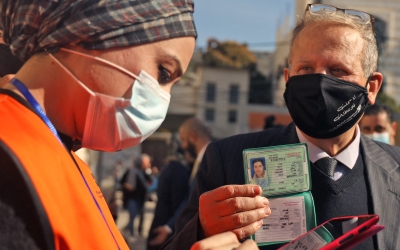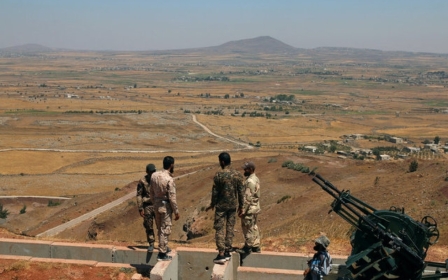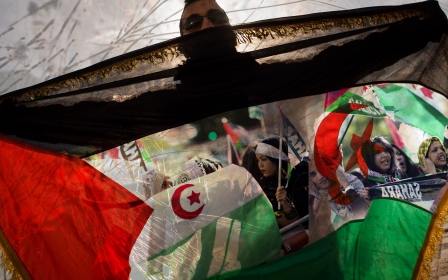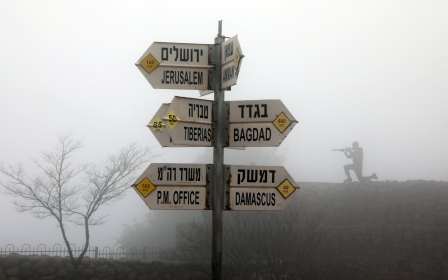Israeli press review: Report finds widespread racism among Israel's youth
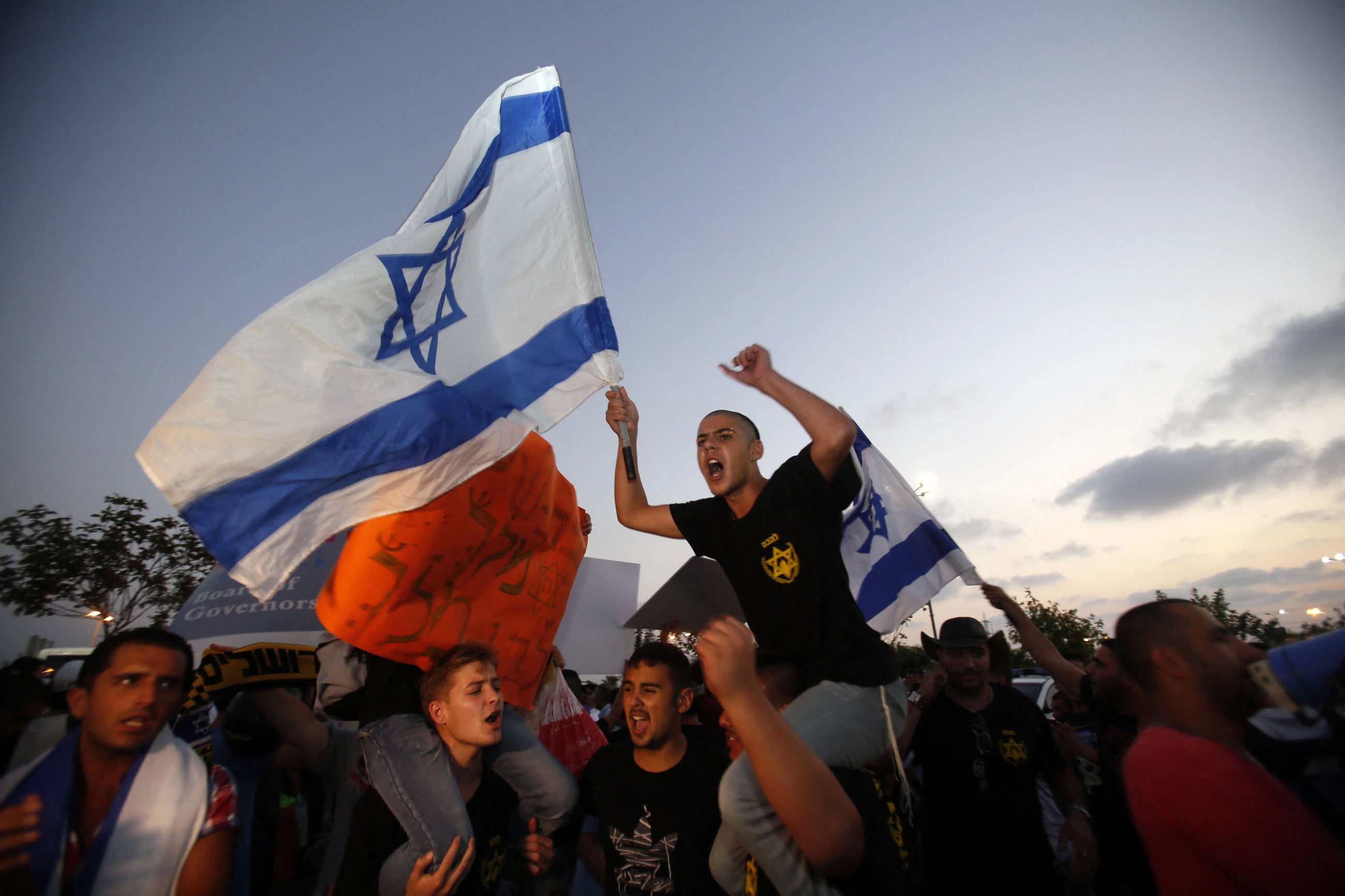
Racial hatred among Israel's youth
A comprehensive study conducted at the Hebrew University of Jerusalem revealed widespread racism and belief in stereotypes among a majority of teenagers from various backgrounds in Israel.
The study, which was conducted by the university's aChord Center, aimed to draw a “map of hatred” in Israel, according to Haaretz, and reached 1,100 youngsters between the ages of 16 and 18 - including Palestinian citizens of Israel, secular, religious and ultra-Orthodox Jewish Israelis - between May and July 2020.
The study showed that 66 percent of the ultra-Orthodox, 42 percent of religious Israelis, and 24 percent of secularists “hate Arabs”, meaning the Palestinian community that makes up 20 percent of the Israeli population and who participate in the Knesset and government institutions.
The study said that 49 percent of religious Israelis and 23 pecent of secular citizens supported stripping the right to vote from Palestinians inside Israel. Twelve percent of Palestinian citizens of Israel said they hated Israeli secularists, and 22 percent said they hated religious and ultra-Orthodox Israelis.
Nine percent of the Palestinians approached by the study said they support stripping the right to vote from Israeli secularists, 13 percent supported taking the vote from religious Israelis, and 19 percent agreed to do the same for the ultra-Orthodox community.
Among Israelis, the levels of hatred varied according to the study. Seven percent of Israeli secularists said they believed religious Israelis should not vote in the elections, and 12 percent said the Ultra-Orthodox communty's right to vote should be denied.
Also, 23 percent of Israeli secularists said they hated the ultra-Orthodox community, and eight percent expressed dislike of religious Israelis. Eight percent of the latter, however, said they hated Israeli secularists, and ten percent said they dislikeed ultra-Orthodox Israelis.
The study concluded that young Israelis expressed severe negative feelings and preconceptions and almost no desire to get to know other groups in the society considered marginal to them.
aChord Center, which deals with social psychological issues to drive change in society, said the goal of the study was to open a discussion about hatred and bridge the gaps between communities and sects in the country through the educational system.
It called for immediate measure to be taken to counter "the absence of tolerance, the hatred and the rejection of the youths who differ from them."
Netanyahu leads in election polls
Israel is expected to face another political crisis after the 23 March legislative election, as new polls from Maariv newspaper show that neither the bloc of Prime Minister Benjamin Netanyahu nor his rivals can score a landslide win.
Both camps might find it difficult to form a coalition government that will hand them power in Israel.
Netanyahu’s Likud party appeared to win 28 seats in the Knesset, followed by Yair Lapid’s Yesh Atid (There’s Future) party, which will win 18 seats.
Gideon Saar, who defected from the Likud party in December to form the New Hope party, was seen as the political force that can unseat Netanyahu and become the next Israeli premier. But Saar has dropped down in the polls recently and his political campaign was shaken after he removed four American advisors this week.
Saar’s party is anticipated to win 15 seats, while Naftali Bennett’s New Right party is expected to win 12 seats.
Yisrael Beiteinu, headed by Avigdor Lieberman, could win eight seats in the March election, with Labor and Meretz forecast to take five seats each.
Netanyahu’s bloc would win 48 seats in the Knesset, according to the polling. If joined by the Yamina political alliance, Netanyahu's bloc will have 60 seats, still one short of forming a government.
Despite that, Netanyahu is still the most suitable candidate for the post of prime minister in the eyes of Israelis, and he received 41 percent support in the poll, compared to 39 percent for Saar. Netanyahu also received 52 percent support compared to 35 percent for Lapid, and 40 percent versus 37 percent for Bennett.
Ibtisam Maraana excluded from election
On Wednesday, the Israeli Central Elections Committee ruled out the nomination of Ibtisam Maraana on the Labor Party’s list in the upcoming elections, after interference from the far-right Otzma Yehudit party.
Maraana, a Palestinian citizen of Israel married to an Israel Jew, is a well-known film director ranked seventh in the Labor Party list.
The Labor Party said after the Israeli Central Elections Committee decision that "Ibtisam Maraana is a partner in building a common future in the State of Israel."
Sixteen members voted to exclude the film director from the Labor Party list and 15 voted against the exclusion, while two members abstained.
Otzma Yehudit, known for its anti-Arab rhetoric and militant opposition to mixed marriages, objected to Maraana running in the 23 March election, saying that she made statements calling for the "return of the Jews to the United States of America and Poland."
The Labor Party is expected to win five to six seats in the elections.
* Israeli press review is a digest of reports that are not independently verified as accurate by Middle East Eye.
Middle East Eye propose une couverture et une analyse indépendantes et incomparables du Moyen-Orient, de l’Afrique du Nord et d’autres régions du monde. Pour en savoir plus sur la reprise de ce contenu et les frais qui s’appliquent, veuillez remplir ce formulaire [en anglais]. Pour en savoir plus sur MEE, cliquez ici [en anglais].


